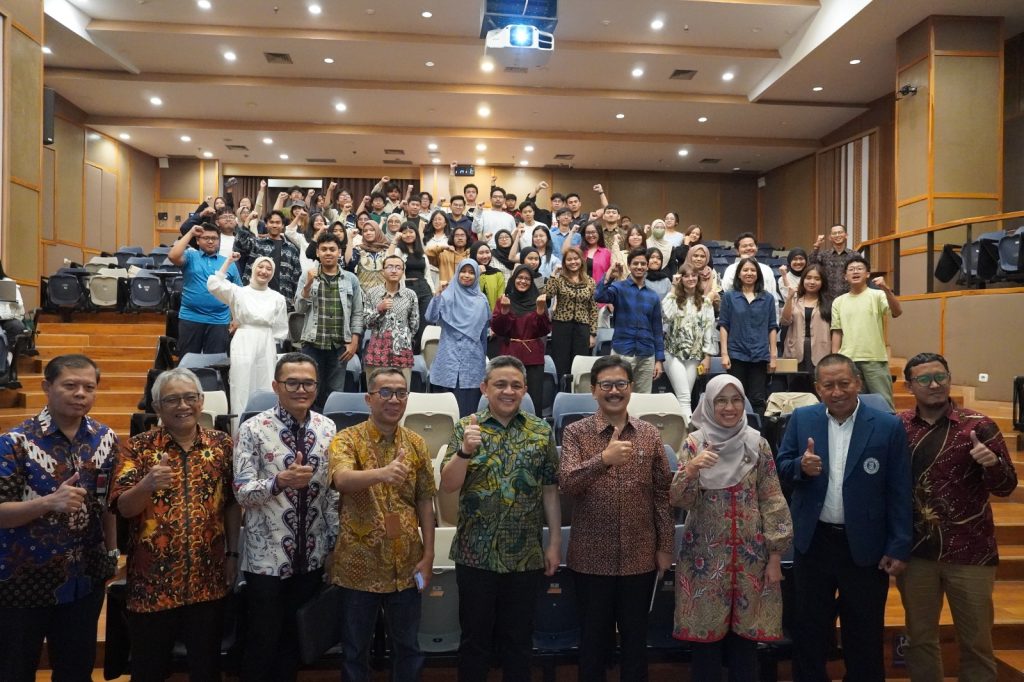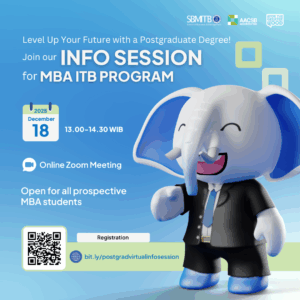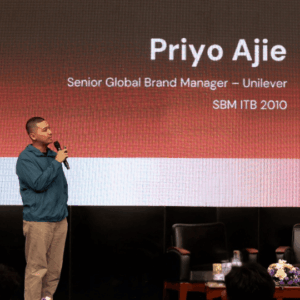Efficiency is crucial in building a successful business. While a product or service may be valuable, it loses relevance if it lacks efficiency.
In the business world, numerous opportunities exist, but these are always accompanied by risks. Therefore, businesspeople who understand economics are better equipped to analyze risks and opportunities.
This was the key message in a public lecture delivered by Dr. Luky Alfirman, S.T., M.A., Director General of Fiscal Balance at the Ministry of Finance. His lecture, “Understanding the Economic Environment to Achieve Successful Business Opportunities,” was hosted by SBM ITB at the Nemangkawi auditorium on Friday (1/11). The lecture was part of the Business Risk Analysis and Management course at SBM ITB.
Dr. Luky emphasized the increasing complexity of global economic challenges. Geopolitical shifts, climate change, aging populations, and the rise of AI and digitalization demand innovative solutions. “Our world is not doing well,” he remarked.
Although some challenges, such as the Russia-Ukraine war, may seem distant, their effects are felt in Indonesia. These two countries are major gas, oil, and wheat producers, and the war has increased commodity prices globally. Central banks, like the U.S. Federal Reserve, have responded by raising interest rates, which has implications for Indonesia’s economy.
In the second quarter of 2024, global economic growth varied significantly, with the U.S. and Emerging Asia showing resilience while Europe’s growth remained weak. However, Indonesia’s domestic economy has remained stable, with growth around 5% since the fourth quarter of 2021. This growth, largely driven by household consumption and the manufacturing sector, offers potential for business ideas aligned with these trends.
Dr. Luky highlighted that Java remains the center of Indonesia’s economy, contributing 57.04% of the Gross Domestic Product (GDP), followed by Sumatra with 22.06%. He suggested that new economic centers should be developed beyond Java and Sumatra to improve the national economy.
Given current inflation trends and changing consumer spending, businesses should consider focusing on Fast Moving Consumer Goods (FMCG). Promoting inclusive economic growth across regions is also essential to ensure that all Indonesians share prosperity.
Dr. Luky suggested that technopreneurs can harness the potential of Indonesia’s diverse regional economies. The government supports technopreneurs through funding from the state budget (APBN), especially in education. Initiatives like LPDP scholarships and research funding are concrete actions to enhance Indonesia’s human resource quality in education.
Looking ahead, Dr. Luky emphasized that Indonesia has a promising path toward Indonesia Emas 2045, aiming to become a high-income country by that year. Indonesia achieved upper-middle-income status in 2022 but must overcome the middle-income trap to reach this milestone by 2045.
Achieving this target requires accelerated growth between 6-7%. According to the World Bank, three strategies—investment, infusion, and innovation (the “3I” strategy)—are critical for escaping the middle-income trap. This strategy prioritizes strengthening human capital to drive economic innovation.
Dr. Luky explained that Indonesia’s 3I strategy aligns with fiscal policy and the state budget. Fiscal policies supporting these objectives focus on short-term needs, medium-term strategies, and the long-term goal of achieving Golden Indonesia 2045.







